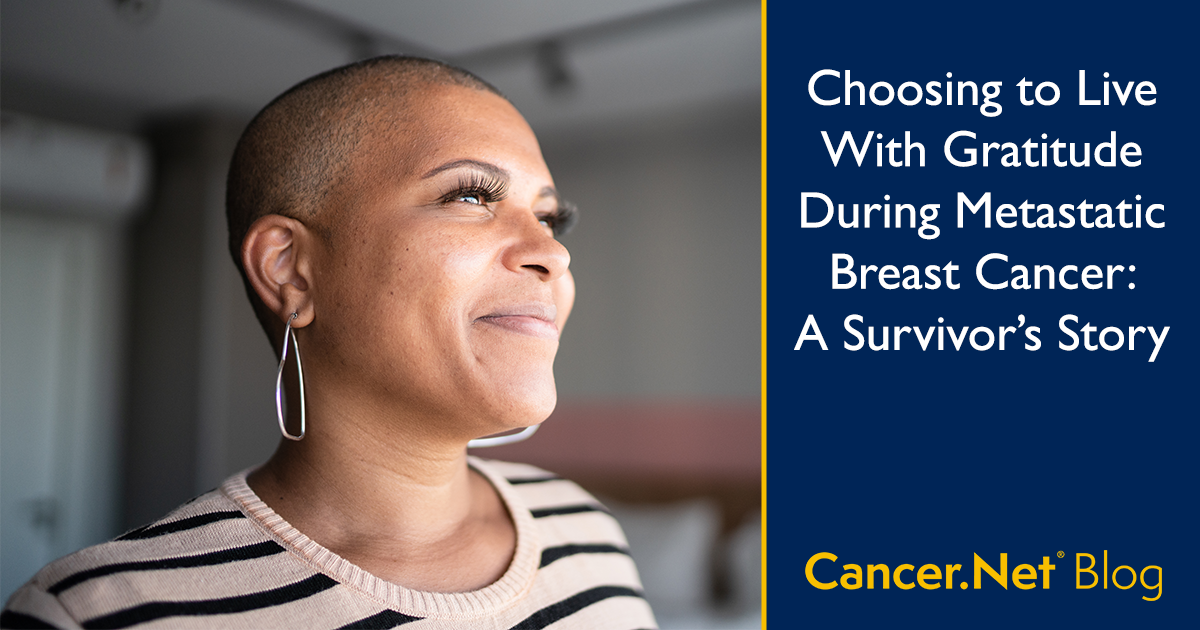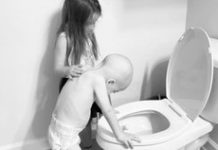
This post was first published on The ASCO Post, April 10, 2022. It has been edited for content. The ASCO Post, in partnership with the American Society of Clinical Oncology (ASCO), communicates news of evidence-based multidisciplinary cancer care to a broad audience of oncology professionals and ASCO members.
Reverend Tawana Davis, PhD, is a community leader, youth/young adult advocate, and domestic violence survivor and awareness activist in Baltimore, Maryland. She is currently surviving HER2-positive metastatic breast cancer while advocating and supporting other breast cancer survivors. Dr. Davis is a co-founder of Soul 2 Soul Sisters, a Black woman led, faith-based racial justice nonprofit organization that centers on Black lives and experiences.
Nothing can really prepare you for cancer, but it helped that I have dedicated my life in service to others as a minister and advocate for social justice and health equity in breast cancer survivorship. Before my own breast cancer diagnosis in 2016, I had spent years as a volunteer for several breast cancer organizations, including as Board Chair for the Stomp Out Breast Cancer Foundation. So, when I heard the words, “You have breast cancer,” I was shocked and frightened. But I knew who to call and what to do to get the support I would need immediately and, as it turned out, over the next 6 years.
Coming to terms with metastatic cancer
Although a mammogram I had in the spring of 2016 found no suspicious lesions or tumors in my breasts, by the fall, swelling under my left armpit sent me to my primary care physician for a checkup. He noted swollen lymph nodes in my armpit and sent me to a breast clinic for further examination. The results of a three-dimensional (3D) mammogram and magnetic resonance imaging (MRI) showed 2 tumors in my left breast. The tumors had gone undetected by my earlier mammogram because they were in the center of my rib cage and far to the left of my chest, which was out of range of the mammogram imaging.
A tissue biopsy of the tumors showed I have HER2-positive, hormone receptor-negative invasive ductal carcinoma. At the time of the diagnosis, I was told I had locally advanced stage IIB breast cancer. I was prescribed the standard-of-care treatment, which included a chemotherapy regimen to shrink the tumors followed by surgical removal of my left breast. Although there were no signs of cancer in my right breast, I opted for a prophylactic mastectomy of both breasts—a decision that I’m convinced may have saved my life.
A pathology examination of the breast tissue and distant lymph nodes found additional cancer, and my diagnosis was changed from stage IIB to stage IV breast cancer. I had to adjust my mindset from believing I had a curable cancer to facing the reality that I now had an incurable one. I didn’t know it at the time, but my prognosis was about to get worse.
Coping with treatment side effects
During my first radiation therapy session to map out the area of my left breast and arm for treatment, imaging scans picked up a cancer recurrence. My oncologist recommended additional surgery to remove the new growth, but I worried that it would leave me further debilitated on my left side. So, I decided to get a second opinion.
The consulting oncologist told me about a clinical trial investigating an immunotherapy drug in women with advanced breast cancer who had received previous treatments. I was the last patient to be enrolled in the study, and I took it as a positive sign that I would have a good outcome. I was also buoyed by the fact that I wouldn’t have to undergo more rounds of harsh chemotherapy and that initially, my body seemed to tolerate the immunotherapy well. I remember thinking that I could live a long time on this therapy. But after a year, the treatment put my immune system into overdrive, affecting my kidneys and causing acute hepatitis and liver injury.
Fortunately, there was another treatment in my oncologist’s arsenal that included a targeted therapy drug, which has so far kept the cancer from advancing. However, I did have a new primary tumor—this time, triple-negative breast cancer—develop near my rib cage. This tumor was also successfully treated with my new treatment regimen. Since then, imaging tests have found no evidence of disease.
Despite all the health setbacks I’ve had over the past 6 years, I remain hopeful that I will continue to live a near-normal, high-quality life. My oncologist is constantly reassuring me that there are so many treatment options now—and more on the way—for my type of breast cancer and that I will be able to manage this cancer for years to come. I cling to her optimism.
Giving gratitude
When I was first diagnosed and undergoing treatment, I took a hard look in the mirror and didn’t recognize the bald, thin person staring back at me. The fatigue, nausea, and painful chemotherapy-related peripheral neuropathy were all whittling away at my resolve. Then I made a decision not to focus on what I had lost but on what I had gained.
I had started a PhD program in Leadership and Change before my cancer diagnosis, and I finally completed my doctoral studies and received my degree this past fall. The program was difficult and took me 7 years to complete, but I achieved my goal despite cancer. So, I acknowledged that accomplishment. I am also aware of my tenuous health status, and I’m grateful for every opportunity to see another day and to spend time with my children and grandchild. Gratitude is a feeling I bring to every day. I also recently began consulting for Carrie’s TOUCH, an advocacy organization for Black women with breast cancer, which gives me life and continued hope.
I want to thank all my family members, friends, congregants, and colleagues for not dismissing me because I have cancer and the challenges that come with it. I may not have the stamina to attend long family gatherings, church services, or business meetings, but I am grateful to everyone for allowing me to do what I can and for giving me the chance to experience everyday joy.
I accept the fact that I have metastatic breast cancer, and I accept the life limitations the diagnosis carries. I don’t know what the future holds, but right now, I have an awesome opportunity to live every day to the fullest.
Despite all the challenges, cancer has given me a great gift. It has taught me to love myself and others unconditionally.





